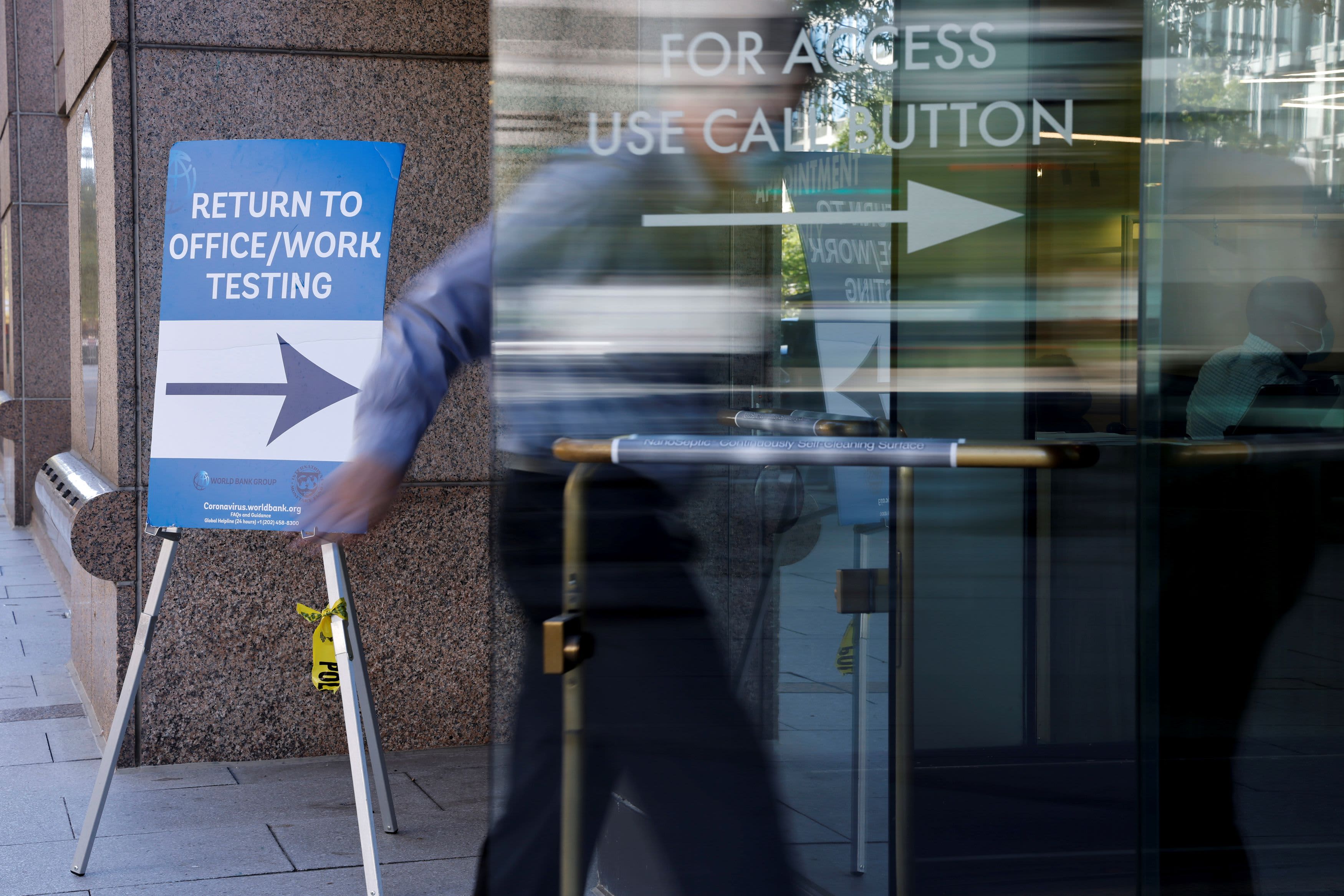As January nears, more workers will be going back to offices, not all at once and maybe not five days a week, but return to work will begin in earnest for more of the U.S. labor force in 2022. Are employers rushing, especially as the omicron variant of Covid presents new risks during winter peak flu season?
According to Dr. Vin Gupta, critical care pulmonologist and affiliate faculty of the University of Washington School of Medicine, there is probably more reason to keep current work-from-home employees away from the office, at least until April or May, than bring them back soon.
Speaking last week to members of the CNBC Workforce Executive Council during a virtual town hall, Gupta said that for companies with workforces that are largely work-from-home right now, “I see no reason, no scientific justification, certainly no psychological reason, to bring your workforce back before April 1, at the earliest, into a workplace setting.”
“Before April 1 doesn’t make a lot of sense to me,” he added.
Part of his view is based on his experience as a pulmonologist. The delta variant is still causing many deaths in the U.S., largely among the unvaccinated, and the omicron variant is anticipated to become a significant factor in 2022. And those Covid trends are taking place during the uncertainty regarding flu season and all of the other respiratory viruses that exist during the winter that take advantage of cold, dry air. While the U.S. did suffer from the delta surge in the height of summertime, that is not a reason to overlook the seasonal effect, but rather, remember that winter could be “absolutely worse.”
Based on the data coming from South Africa and other places where early testing and sequencing is being done it is clear that there’s a straight line up in terms of cases detected over time, he said, and that is distinct from delta, which had a sharp rise but was a bit more gradual. “I think it’s a matter of time before omicron becomes the dominant variant, because it’s out competing delta in places where we think it first originated,” Gupta said, adding that it will become the dominant strain in the next weeks and months ahead.
The U.K. confirmed its first death from the omicron variant on Monday.
That means the U.S. health system will be stressed and the headlines “are not going to be pretty” for the next few months. “Even if it’s less lethal, it’s still going to infect more people and the unvaccinated, frankly, are defenseless, they’re going to end up in the hospital at a greater rate,” he said.
Many companies are delaying plans to return to offices, though not only because of omicron. Apple pushed back its return to February even before news of omicron broke. Since the new variant’s emergence, Google pushed back a planned Jan. 10 return date.
“If people are looking for a clear deadline here, I would start planning Q2 return-to-office,” Gupta told members of the CNBC WEC.
The pulmonary medicine expert said the psychological reasons for delaying return to office are as strong if not stronger than the virology ones.
“Psychologically, we’re not going to be in a place where we feel particularly safe, especially with the headlines that continue to dominate on omicron. And I don’t think that’s going to abate until April 1,” Gupta said. “April 1 to me is going to be hopefully a pivot point psychologically, we’re we’re past cold and flu season, we’re past the worst of delta plus omicron,” he added.
Part of his thinking on April 1 is that it is a date by which there will be significantly greater uptake of Covid booster shots, as well as greater uptake of first shots among the broader population. And there may be more cities following the lead of New York City and mandating the vaccine.
“I do think we’re going to make greater progress,” Gupta said.
There is a way to proceed safely right now, Gupta said in a Tuesday interview with CNBC’s “Closing Bell” if firms create a “vaccine bubble” — requiring all workers in officers to have three Covid vaccine shots, including the booster.
“Many companies that have created vaccines bubbles have done fine and that’s three shots,” Gupta said.
A new study from Oxford University indicated that individuals with two vaccine doses from Pfizer-BioNTech or Astra Zeneca can still be infected by omicron. Top U.S. infectious disease expert Dr. Anthony Fauci said on Sunday in a television interview on ABC that three doses including the booster is “optimal care,” but the U.S. government won’t be changing its definition of “fully vaccinated.”
With Covid deaths still at 10,000 per week in the U.S., and as of Friday, 25 U.S. states having detected omicron, the likely best-case scenario is deaths plateauing there for at least a few months, and that is among the reasons why firms that don’t create vaccine bubbles should tell employees they don’t have to go back until April or May, Gupta said.
Missed this year’s CNBC’s At Work summit? Access the full sessions on demand at https://www.cnbcevents.com/worksummit/
